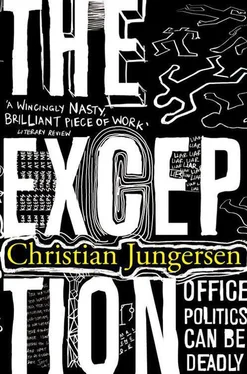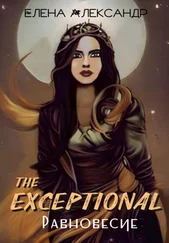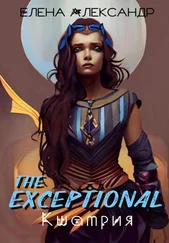Christian Jungersen - The Exception
Здесь есть возможность читать онлайн «Christian Jungersen - The Exception» весь текст электронной книги совершенно бесплатно (целиком полную версию без сокращений). В некоторых случаях можно слушать аудио, скачать через торрент в формате fb2 и присутствует краткое содержание. Год выпуска: 2010, Издательство: Orion Books, Жанр: Современная проза, Триллер, на английском языке. Описание произведения, (предисловие) а так же отзывы посетителей доступны на портале библиотеки ЛибКат.
- Название:The Exception
- Автор:
- Издательство:Orion Books
- Жанр:
- Год:2010
- ISBN:нет данных
- Рейтинг книги:3 / 5. Голосов: 1
-
Избранное:Добавить в избранное
- Отзывы:
-
Ваша оценка:
- 60
- 1
- 2
- 3
- 4
- 5
The Exception: краткое содержание, описание и аннотация
Предлагаем к чтению аннотацию, описание, краткое содержание или предисловие (зависит от того, что написал сам автор книги «The Exception»). Если вы не нашли необходимую информацию о книге — напишите в комментариях, мы постараемся отыскать её.
The Exception — читать онлайн бесплатно полную книгу (весь текст) целиком
Ниже представлен текст книги, разбитый по страницам. Система сохранения места последней прочитанной страницы, позволяет с удобством читать онлайн бесплатно книгу «The Exception», без необходимости каждый раз заново искать на чём Вы остановились. Поставьте закладку, и сможете в любой момент перейти на страницу, на которой закончили чтение.
Интервал:
Закладка:
Gunnar is telling her about being in Dar es Salaam to interview Habyarimana, the former Rwandan President. Not long afterwards the presidential plane was shot down and his widow kept herself busy by killing Rwandan Tutsis. These revenge killings alone led to half a million deaths. Gunnar speaks of when he handled one of the heavy, nail-studded wooden clubs used to break human skulls.
‘A lot of the murdering was done inside churches, where many of the Tutsis sought refuge. It was hard work killing human beings with whatever was at hand — mostly household implements and agricultural tools. Faced with hundreds of victims, the Hutus found it expedient to cut the Achilles tendons of their victims straight away. Then they could take their time about the slaughter — days, if necessary.’
In his company Iben finds it easier to recall the three months she spent in Nairobi before being captured. She tries to express how surreal it all was. Most people are bemused, but Gunnar knows Africa.
They lean against one of Sophie’s bookshelves. She loses track of time. Then somebody passing by accidentally bumps into Iben and she discovers that she’s been standing there with her mouth half open a bit too long, gazing up into Gunnar’s regular features and drinking in his long, absorbing explanations. She gives herself a little shake, like a dog that’s clambered out of the water.
I’d better go and talk to someone else, Iben tells herself. But she sees Malene heading over to join them. This is not good.
Malene doesn’t look at Iben, only Gunnar, when she tells him about meeting one of his journalist friends at the Centre and what a weird encounter it was.
Iben wants a glass of water. She turns to go, but Gunnar grabs hold of her wrist. ‘Who knows, I might run into you one day at the Metro Bar.’
‘Metro Bar?’
‘Don’t you know it? I was sure I’d seen you there. It’s the café, next to Broadcasting House. I go there several times a week.’
‘No, I don’t know it.’
Iben realises what he has just said and quickly looks at Malene.
Malene pats Gunnar’s broad shoulder. ‘Look, I really came over to tell you that I’d better leave. My feet …’ She smiles a big goodbye instead of finishing the sentence.
Gunnar and Iben nod in silence, looking at her arthritic hands and feet.
Malene smiles again. ‘Iben, are you coming?’
2
The Danish Centre for Genocide Information, or DCGI for short, was set up to collect data about genocide and make it available, both in Denmark and abroad, to researchers, politicians, aid organisations and anyone else with a genuine interest. Over the years, the organisation has accumulated Scandinavia’s largest collection of books and documents on the subject.
The DCGI is housed in a restored old red-brick building, along a lane in Copenhagen’s central Østerbro district. Its offices and library take up the entire attic floor, a space once occupied by the city council archives.
The library is expanding all the time. Grey steel shelves cover the walls almost everywhere — in the kitchen, the hallway and the space they call the Small Meeting Room. They have also invaded the largest room, which serves as a shared office for Iben, Malene and Camilla. Wider and heavier industrial-style shelves, the steel lacquered dark green, have been tucked into the less accessible corners and are laden with cardboard boxes full of documents such as diplomatic reports and transcripts of foreign court proceedings.
Only five people are employed to manage the Centre and handle the mountains of printed material. In addition to Iben (the information officer) and Malene (the projects manager) are Paul, the head of the Centre, Camilla, Paul’s secretary, and Anne-Lise, the librarian.
Apart from Paul’s room, the spacious main office is the brightest and most pleasant. Iben and Malene sit facing each other at ergonomically correct desks. Although most of the walls are lined with books, the shelving is not as tightly packed as it is in the library. Malene has put potted plants on the sills in front of the three windows, which is why the office is lovingly referred to as the ‘Winter Garden’. The point of the joke is, of course, that the room will always look like a library, regardless of how much vegetation is crammed into it.
Iben and Malene have tried to make their office look more homely in other ways as well. They have put up a notice board and with time it has become covered with photos, conference invitations, newspaper cuttings and postcards with teasing messages about the sender having a great holiday while they’re slaving away in an office.
It’s the Monday morning after Sophie’s get-together and Iben and Malene are at work as usual. They sometimes chat with each other, sometimes with Camilla, whose desk is at the other end of the large room, next to Paul’s door.
Iben can sense something — something in Malene’s eyes.
At one point, Malene sighs audibly and Iben looks up. ‘What’s the matter?’
‘Oh … nothing.’
Malene prints out a piece that she’s been working on and starts correcting it, first with a green marker and then with red. After a while she sighs again.
Iben looks away from the screen, hesitates and tries a little smile. They are such good friends that Malene can’t help smiling back.
‘What’s up?’ Iben asks.
Malene slams the printout down on the wrist-support in front of her keyboard.
‘I just can’t get it right. Not the way I want it.’
‘What’s the problem?’
‘I’ve got to get the text ready for at least three posters about how Danes rescued lots of Danish Jews. It’s for the exhibition. It’s so hard … Whatever I write sucks. It sounds so self-satisfied and so … evangelical!’
Iben leans forward, pleased that Malene seems to have forgotten about the slight awkwardness at Sophie’s party.
‘I’ve rewritten the whole thing four times, but it’s just … How do I avoid writing stuff like: “The only country in the world” and so on?’
‘Why not add something about the restrictive asylum policy towards foreign Jews during the 1930s?’
‘I thought of that, but it doesn’t fit in with the main theme of the exhibition. Besides, what I wrote sounded crap as well.’ Malene starts writing again.
Iben gives up and returns to her own screen. She can’t quite put Malene out of her mind, even though she knows that there’s no real conflict between them and Malene is probably just having a bad morning.
They are both working on an exhibition based on an idea that Malene had while Iben was away in Africa. Malene thought that many people might share her own sense of weariness at all the evil deeds in the genocidal world out there, and want to know more about the heart-warming exceptions. She thought up a theme for a poster exhibition that would celebrate the small minority of good and brave people in Nazi-controlled regions — people who saved lives during the Holocaust. She talked to Paul and he liked the idea. The Copenhagen City Library agreed to allocate space and time, and afterwards, the exhibition would be made available to schools and any other interested institution.
Something occurs to Iben. ‘Maybe it would work better if you described the civil servants behind the thirties asylum policy? It would fit in with your approach of looking at the individuals behind the rescue stories.’
Malene takes her time to reply and Iben doesn’t want to sound bossy.
‘Look, it’s just a thought.’
Iben’s job is to research the background for Malene’s posters. She is revising her notes on the story about the Polish shepherd Antoni Gawrylkiewicz. He risked his life by digging underground shelters, where he housed sixteen Jewish survivors of the ghetto massacre in Radyn. The Jews had managed to escape by hiding in an attic. When the Germans were searching the house, a Jewish father had to strangle his youngest child, a little boy, because he started to cry.
Читать дальшеИнтервал:
Закладка:
Похожие книги на «The Exception»
Представляем Вашему вниманию похожие книги на «The Exception» списком для выбора. Мы отобрали схожую по названию и смыслу литературу в надежде предоставить читателям больше вариантов отыскать новые, интересные, ещё непрочитанные произведения.
Обсуждение, отзывы о книге «The Exception» и просто собственные мнения читателей. Оставьте ваши комментарии, напишите, что Вы думаете о произведении, его смысле или главных героях. Укажите что конкретно понравилось, а что нет, и почему Вы так считаете.












